
Mood disorders for all ages are bordering on epidemic proportions throughout the world. Our modern lifestyle has changed our inherent balance primarily through technology. We no longer rest when the sun goes down or eat food that is whole and void of chemicals. Everywhere we look today, people are living at a high speed pace with little thought of their internal environment until they crash. Most people run to their doctor demanding a quick fix.
Drugs are no panacea. Almost a third of patients do not respond to antidepressants and the ones that do, find the drugs less effective over time coupled by unpleasant side effects. A collective accumulation of internal and external developments leads to a depressed state. It makes more sense to find natural, non drug ways to correct the imbalance of neurotransmitters like serotonin and other key elements involved with depression.
What Transmits Feelings of Depression
Symptoms of depression on up to feelings of suicide are usually brought on by reduced levels of neurotransmitters such as serotonin, norepinephrine and dopamine. Serotonin is a key buffer against depression. Similar to a speech defect that hinders communication, interferences with neurotransmitter activity may short circuit the brain’s internal communication. Neurotransmitters regulate many of the body’s activities such as anger, joy, sleep, hunger, mobility and memory.
Depression May be a Physical Cause
Depression may also be symptomatic of other medical conditions, such as hypothyroidism, anemia or diabetes. The thyroid is an emotional gland which forms a triad with the adrenals and pancreas, always interrelating—all having an effect on our mental state.
Thyroid
The symptoms of depression may be a sign that a person’s thyroid is underactive. Low thyroid can lead to feelings of despair and extreme sadness. The amino acid Tyrosine is used by the body to make the neurotransmitter noradrenaline, which is found in lower levels of these people who are depressed.
Anemia
Anemia can bring on feelings of depression by impairing iron absorption in the cells that regulate dopamine in the brain.
Diabetes
Recent research points to depression as a possible cause or trigger in diabetes. Studies show that people with diabetes have a greater risk of depression than people without diabetes.
Folic Acid Alert
A clinical study performed at the Harvard Medical School by Dr. Fava, a director of the depression and research program, found that patients with low folate levels had a much lower response to antidepressants than those with normal levels.
Rethink Your Diet
Like most things it appears to be all about balance. Our ancestor’s diet consisted of mostly green plants and small animals which were low in fat but high in cholesterol. As it turns out we find that low cholesterol levels do interfere with the regulation of serotonin. Since high levels would not be recommended either, the suggestion would be to monitor both levels.
Therefore a question about carbohydrates springs to mind. Carbohydrates do improve serotonin temporarily but over the long run, a high carb diet leaves you feeling low and sluggish. The diminishing sense of well being partly stems from the elevated insulin levels which in turn boost the production of certain prostaglandins linked to depression.
Happy Foods
To help maintain healthy insulin and cholesterol levels, emphasize fruits, vegetables and whole grains while limiting sweets, processed and junk foods. At each meal strive to consume a protein/fat/carbohydrate ratio of 30%, 30%, 40%. Additionally frequent small meals of 500 calories or under, keep insulin levels lower that large meals. A few suggestions of foods to help curb depression are those rich in omega-fatty acids found in salmon, trout, walnuts, soybeans and chocolate also boosts levels of serotonin. Other foods producing a calming effect contain tryptophan found in bananas, peanuts and turkey.
Exercise Verses the Blues
A surprising study presented by the Society of Behavioural Medicine, conducted at the Duke of Medical Centre showed that even short workouts as brief as eight minutes were enough to enhance mood by reducing feelings of sadness, tension, fatigue, anger and confusion. Exercise is a natural serotonin booster, not to be linked with only joyful moods but also with better overall health.
Non Drug Alternatives to Treat Depression
Tryptophan
Tryptophan is an amino acid, available in a dietary supplement form of tryptophan or 5-HTP. Tryptophan is converted by the body into 5-hydroxytryptophan and then into serotonin.
SAM-e
SAM-e is a naturally occurring molecule that is involved in a number of metabolic functions including the neurotransmitters serotonin and dopamine that are imbalanced in people who suffer with depression.
L-Tyrosine
You cannot make dopamine without L-Tyrosine. Tyrosine is an amino acid used by the body to manufacture noradrenaline which has shown to be in short supply in the brains of people with mood disorders. It is necessary for energy and for the product of thyroid hormones T3 and T4 as well as other adrenal hormones.
Glutamine
Glutamine is an amino acid used by the body to make the neurotransmitter glutamate. Glutamate is promoted as a ‘brain food’ inducing more energy and improving mood.
Phenylalanine
Phenylalanine is an amino acid used by the body to make the neurotransmitter norepinephrine. The goal in supplementing phenylalanine is to prompt the brain to yield more norepinephrine.
Inositol
Inositol is a type of sugar related to glucose. Since low levels of inositol have been found in the spinal fluid of people with depression and in the brains of those who have committed suicide, insositol is being promoted as a useful treatment for mood disorders.
St. John’s Wort
The herb St. John’s Wort has traditionally been used to treat all forms of nerve and emotional disorders. Herbs are often preferred over antidepressants due to much fewer side effects.
Other Suggestions
Complementary treatments for depression are wide and varied. Other suggestions include; Light Therapy, Negative Air Ionisation, Music, Yoga, Meditation, Vitamin/Minerals, Melatonin, Homeopathy and Herbal Remedies.
Depression is looked upon as one of the worse illnesses of our modern day society. To take claim of your mental health, as your first line of defence, consider lifestyle factors while incorporating a dietary and supplemental regime to reduce the inevitable emotions and health challenges associated with depression.
Copyright © 2017 – All Rights Reserved – Michelle Honda Ph.D.
Announcement
Look for my new forthcoming books “Reverse Heart Disease Naturally” (Jan.31, 2017) and “Reverse Inflammation Naturally” (May 31, 2017) “Reverse Thyroid Diseases Naturally” ( 2018) and “Reverse Alzheimers/Dementia Naturally” (2018)
Where to Purchase:
Reverse Gut Diseases Naturally
Reverse Heart Disease Naturally
Reverse Inflammation Naturally
Hatherleigh Press Page Buy Book RGDN
Local Book Stores in US and Canada
Disclaimer
While close attention was given to the accuracy of information in this article, the author accepts neither responsibility nor liability to any person with respect to injury, damage, loss or any circumstances involving alleged causes directly or indirectly related to the information in this article. The sole purpose is to educate and broaden ones awareness. This information is not meant to replace medical advice or services provided by a health care professional.





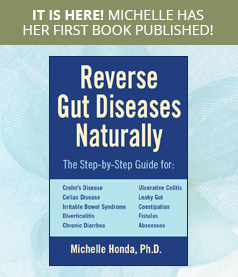

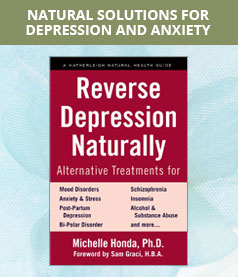
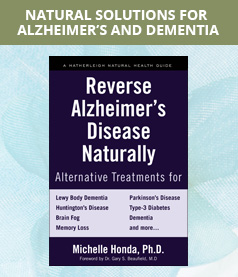
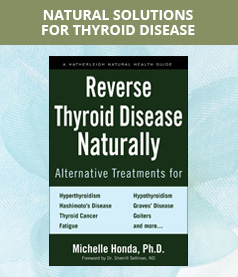

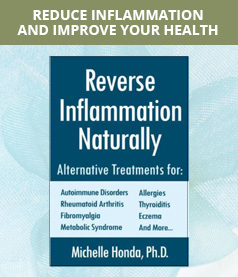
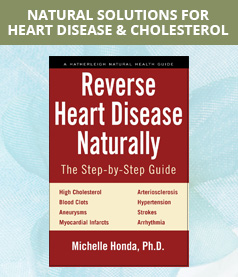
Thank you so much for sharing such an informative and useful home remedies for depression.
Hi Ravi,
Glad you found it helpful.
Best,
Michelle Honda